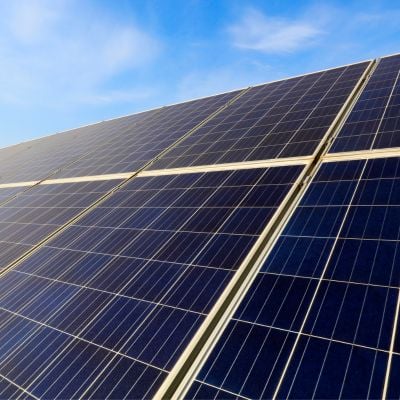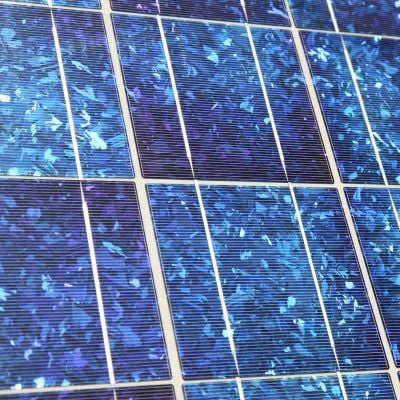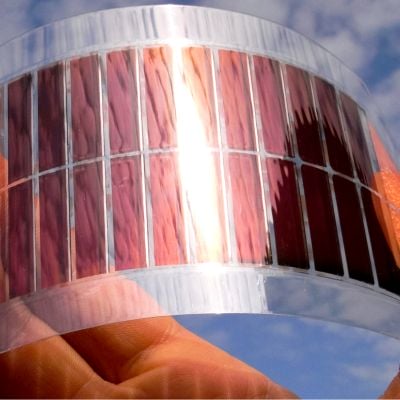Types of Solar Cells for Caravans and RVs
Author: Solar 4 RVs
Introduction:
Caravanning is a popular pastime, and with the advent of solar technology, it has become easier than ever to enjoy off-grid adventures. One of the most important components of any caravan solar setup is the solar panel. There are several types of solar panels available on the market today, each with its own advantages and disadvantages. In this buyer guide, we'll explore the different types of solar panels for caravans, their features, and what to look for when choosing the right one for your needs.
Types of Solar Panels for Caravans:
1. Monocrystalline Solar Panels:
Monocrystalline solar panels are made of a single crystal of silicon and are known for their efficiency. They are the most efficient type of solar panel, converting around 21-25% of the sunlight that hits them into electricity. Monocrystalline panels are also compact and lightweight, making them an ideal choice for caravans.
Advantages:
- High efficiency
- Compact
- Long lifespan
- High durability
Disadvantages:
- Expensive compared to other types of solar panels
- Can be affected by shading
2. Polycrystalline Solar Panels:
Polycrystalline solar panels are made from multiple small crystals of silicon, giving them a distinctive blue color. They are less efficient than monocrystalline panels, typically converting around 18-22% of sunlight into electricity. However, they are more affordable and offer a good balance between efficiency and cost.
Advantages:
- Affordable compared to monocrystalline panels
- Good efficiency
- Durable and long-lasting
- Suitable for a wide range of applications
Disadvantages:
- Less efficient than monocrystalline panels
- Larger and heavier than monocrystalline panels
- The cost difference between mono poly is insignificant these days
3. Thin-Film / Amorphous Solar Panels:
Thin-film solar panels are made by depositing a thin layer of photovoltaic material onto a substrate. They are typically less efficient than crystalline silicon panels, converting around 10-12% of sunlight into electricity. However, they are lightweight and flexible, making them a good choice for curved surfaces.
Advantages:
- Lightweight and flexible
- Can be used on curved surfaces
- More affordable than crystalline silicon panels
- Good in low light conditions
Disadvantages:
- Less efficient than crystalline silicon panels
- Shorter lifespan than crystalline silicon panels
- Can be affected by high temperatures
What to Look for When Choosing a Solar Panel for Your Caravan:
1. Size and Weight:
When choosing a solar panel for your caravan, it's important to consider the size and weight of the panel. You'll need to make sure the panel is the right size for your caravan and that it's lightweight enough to be easily transported.
2. Efficiency:
The efficiency of a solar panel is the percentage of sunlight that is converted into electricity. The higher the efficiency, the more electricity the panel will produce. However, higher efficiency usually means higher cost.
3. Durability:
Solar panels are designed to last for many years, so it's important to choose a panel that is durable and long-lasting. Look for panels with double walled frames, tempered glass, and good weather resistance. All of Solar 4 RVs panels have these features.
5. Shade Tolerance:
Shading can significantly reduce the efficiency of solar panels. Look for panels that are designed to handle shading well, especially if you plan to park your caravan under trees or in shaded areas or use more smaller panels rather than a large one. Usually around 200W is a happy medium.
6. Cost:
The cost of solar panels can vary widely depending on the type and brand. Consider your budget when choosing a panel, but remember that a more expensive panel may pay for itself over time through increased efficiency and durability.
Conclusion:
When it comes to choosing the right solar panel for your caravan, there are several factors to consider. Monocrystalline panels offer the highest efficiency, but they are also the most expensive. Polycrystalline panels offer a good balance between efficiency and cost, while thin-film and amorphous panels are lightweight and flexible but less efficient. When choosing a panel, consider the size and weight, efficiency, durability, temperature and shade tolerance, and cost. With the right solar panel, you can enjoy off-grid adventures in your caravan with peace of mind and the power to keep your appliances running.
See our range of solar panels here or continue reading our other guides.





























